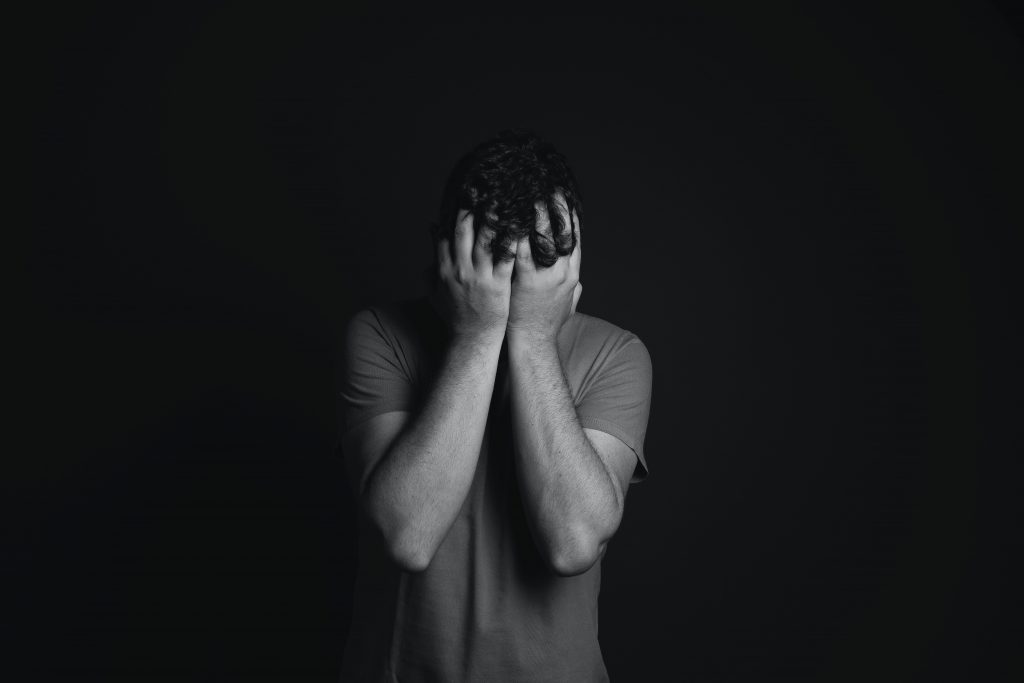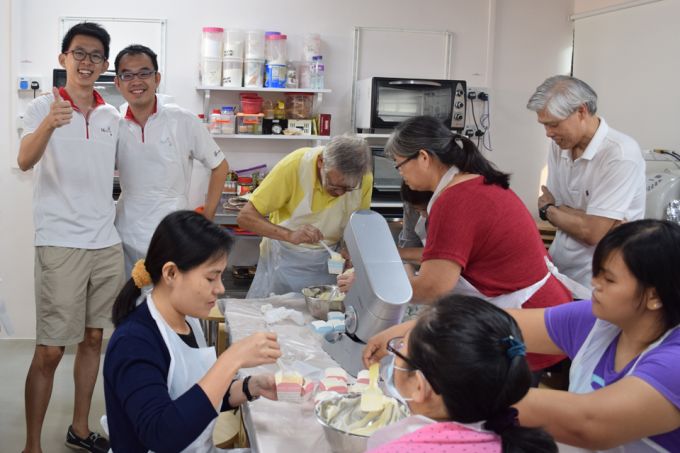
Table of Contents
- What’s the mental health scene in Singapore?
- How do individuals with mental health issues experience life?
- Are other aspects of wellness connected to mental health?
- What does mental health look like in the Covid-19 pandemic?
- What are social service agencies doing to help?
- How are organisations doing good for mental health?
- How can I help as a friend or family member?
- How can I help as a volunteer?
- List of hotlines to get professional help in Singapore
Mental health is important for everyone, and we can support those around us with simple acts of care and understanding. However, it can be hard to identify who needs our support. Sometimes, we may not even notice it among our closest friends.
So how can we help? First, let’s take a look at our local landscape.

What’s the mental health scene in Singapore?
Mental health in Singapore is just as important as it is anywhere else. An important distinction is that “mental health” refers to a person’s condition with regard to their psychological and emotional well-being, while “mental disorder” refers to health problems that affect how a person thinks, behaves and interacts with others.
One in seven people in Singapore have experienced mental disorders, an increase from roughly one in eight several years ago, with the top three being major depressive disorder, alcohol abuse and obsessive-compulsive disorder. Mental disorders can impair the way we think, feel and behave. It affects not only our daily activities, but impacts the lives of our family members and friends.
It is important to take care of our mental health as it impacts our ability to interact with one another, earn a living and enjoy life.
While healthcare in Singapore is mostly accessible, some groups still fall through the cracks in the system. Vulnerable groups such as migrant workers, and even mothers experiencing pre-and post-natal depression are often overlooked. Structural barriers such as financial barriers and residency status often affect an individual’s access to mental health support and treatment, and community groups continue to be vital in facilitating access to treatment. Cultural barriers around mental health may also deter individuals from seeking help.
As individuals, we can take small steps to help reduce the cultural barriers and stigma around mental health by not only raising awareness, but supporting community groups and programmes. It is also important that we understand how mental health issues affect individuals in their daily lives, in order to know how we can help.
How do individuals with mental health issues experience life?
For people with mental health issues, others tend to define them by their illness, rather than who they are as individuals. Oftentimes people with mental health issues are referred to as ‘psychotic’ rather than ‘a person with psychosis’. This type of language tends to dehumanise individuals, and reduce their identity to only their diagnosis. The social stigma and disrcimination that people with mental health issues experience can exacerbate their challenges, making their recovery even harder. This may cause people to avoid getting the help they need, due to the fear of being stigmatised or treated differently by the people around them.
Did you know that the public disapproves of individuals with psychiatric disabilities more than those with physical related illnesses? Individuals with mental illness are often thought to be ‘responsible’ for causing their disabilities, as opposed to those with physical disabilities. Common negative perceptions like this lead to discrimination. Discrimination against individuals with mental health issues may not be explicit or direct, but can come in subtle forms such as negative remarks about the mental illness or treatment that one has. Nearly nine out of ten people with mental health problems say that stigma and discrimination have a negative effect on their lives. Such effects include:
- Reluctance to seek help or treatment
- Judgement and lack of understanding by family, friends, co-workers or others
- Fewer opportunities for work, school or social activities
- Bullying, physical violence or harassment
Moreover, prejudice can lead to self-discrimination. Fear of rejection by others can lead individuals facing mental health issues to view themselves poorly, which may lead to dire consequences. About 20% of the world’s children and adolescents have a mental health condition, and suicide is the second leading cause of death amongst 15-29-year-olds. In Singapore, suicide is the leading cause of death for those aged 10-29. Indeed, social inclusion thus has an immensely positive effect on people with mental health conditions, and efforts to reduce the stigma surrounding mental health conditions can help change mindsets and the way these individuals are treated.
Are other aspects of wellness connected to mental health?
Mental health comes hand in hand with other types of health, including social and physical health. For example, older adults with physical health conditions have higher rates of depression as compared to those who are healthy. Untreated depression in older individuals can also negatively affect physical health conditions. Taking care of our physical health is also proven to have a positive effect on our mental health. In the same way, if one starts to decline, so does the other. Plus, good physical health helps alleviate symptoms of depression.
Multiple social, psychological, and biological factors determine one’s level of mental health at any point in time. Determinants of mental health and mental disorders do not only include individual attributes, but also social, cultural, economic and environmental factors too. Poor mental health can also be associated with rapid social change, stressful work conditions, social exclusion and more. For low-income individuals, they are more susceptible to mental health conditions. Having to grapple with financial stressors creates a psychological burden that can lead to anxiety and other mental health conditions.
What does mental health look like in the Covid-19 pandemic?

As mentioned above, multiple factors determine our level of mental health at a given point in time. Social isolation has been known to be a key trigger for mental illness, and lack of social interactions also damages mental health. Emotional support provided by social connections can reduce the effects of stress, while also fostering a sense of meaning and purpose in life. This social connectedness generates a positive feedback loop of social, emotional, and physical well-being.
However, during the Covid-19 pandemic and the required quarantining that comes with it, it has become much harder to connect with those around us and foster supportive relationships.
Covid-19 not only affected adults with job losses, but the pandemic’s psychological impact on children also requires our attention. Younger children often feel more helpless as it is difficult for them to process events and emotions.
What are social service agencies doing to help?
Social service agencies caring for children and youth offer financial aid, protection and psychological assistance in efforts to provide for them during these unprecedented times.
The current situation resulted in disruptions to our normal routine. Plus, the new range of challenges that most of us are facing inadvertently has an effect on our mental health. Not just in Singapore but around the world, there has been a spike in the number of calls to
mental health hotlines. Socially isolated elderly and individuals with disabilities have also been found to be most vulnerable and likely to require additional support and access to specialised services. Getting this support is only made harder by the current situation. Fortunately, support services such as basic counselling and a listening ear are available remotely, ensuring that we need not face tough times alone. Fei Yue Community Services is one such non-profit organisation that helps provide support to elderly individuals in isolation. They believe in promoting social development, while serving and reaching out to the community.
Covid-19 has also affected social service charities in Singapore. Although virtual exchanges still allow social workers to connect with vulnerable individuals, this hinders their ability to connect with individuals as intimately and deeply as they did before.

For Ms Ong Bee Yong, the Covid-19 pandemic raised thoughts about how social workers like herself could help support the healthcare community and their mental health. She highlights that practical needs are most commonly addressed, but those that occur in one’s mind tend to be more elusive. As such, Ms. Ong formed Crisis Relief Alliance (CRA) with friends and acquaintances, providing a counselling hotline for healthcare workers to seek support and a listening ear. CRA has since extended its support further to migrant workers and is helping to meet the psycho-social needs of our community.
How are organisations doing good for mental health?

Organisations and charities have been working hard to raise awareness about mental health and mental disorders. Corporations are also making moves to support the mental health community. In 2011, Jardine Matheson Group initiated its philanthropic outreach programme, Mindset Care Limited that supports those suffering from mental illness via employment, fundraising and raising public awareness.
How can I help as a friend or family member?
On an individual level, we all have a duty to help make Singapore a more inclusive society. We can take small steps to help destigmatize mental health and raise awareness, and make the lives of individuals facing mental health issues more pleasant.
Simple ways include educating ourselves first by learning facts about mental illness. In doing so, we will be able to also correct individuals when we hear others making stereotypical or inaccurate comments about mental illness. The manner in which we talk about mental health is also extremely vital. It is important not to judge, label or discriminate when we meet people with mental illness. Moreover, avoid using language that puts the illness first and the person second. For example, say ‘a person with bipolar disorder’ rather than ‘that person is bipolar’. When getting to know them, we can learn to see them for the person they are, rather than their illness.

We should pay attention to those around us and look out for those who might be in need of our support. We can encourage them to seek timely treatment where necessary. If you have gone through something similar and are comfortable doing so, take the chance to share your own experience to help dispel myths and encourage others to do the same. Every small act counts towards making Singapore more inclusive, and raising awareness about this important issue.
If you think your friend/peer is showing warning signs of mental health conditions, encourage them to seek timely help from a counsellor in school or at work who can connect them to the appropriate service providers.
How can I help as a volunteer?
We can also support migrant workers through the existing wellness programmes run by Healthserve and Humanitarian Organisation of Migrant Economics (HOME). Moreover, we can follow in the footsteps of older youth volunteers, who helped lead the way in helping organisations harness teleconferencing during the Covid-19 pandemic, helping to cultivate relationships online. Learn more about such organisations and opportunities to take part and make a difference for mental health causes on giving.sg.
To find out available services for both ourselves and our friends, download the Mind Matters Resource Directory and follow the MentalHealthAwarenessSG Facebook page to be plugged in for the latest happenings. In addition to these resources, the Samaritans of Singapore provides a list of helplines for us to turn to when we need support.

List of hotline to get professional help in Singapore
Crisis Helpline and Suicide Prevention
| Mental Health Helpline / Institute of Mental Health | Tel: 6389 2222 (24 hours) |
| Hotline/Samaritans of Singapore (SOS) | Tel: 1800-221 4444 (24 hours) |
General Counselling
| Counselling Helpline/Singapore Association of Mental Health | Tel: 1800-283 7019 (Mondays to Fridays from 9am to 6pm, except public holidays) |
| Care Corner Counselling Hotline(Mandarin)/Care Corner CounsellingCentre | Tel: 1800-3535 800 (Mondays to Sundays from 10am to 10pm, except public holidays) |
| Support for WellnessAchievement Programme (SWAP)Hotline/Institute ofMental Health | Tel: 6389 2972 / 9017 8212 (Mondays to Fridays from 9am to 5pm) |
| Tinkle Friend Helpline/SingaporeChildren’s Society | Tel: 1800-274 4788 (Mondays to Fridays, 2.30pm to 5.00pm) |
| Helpline/Limitless (Ltd) | Please fill in the form at www.limitless.sg/talk. Mode of contact: Call/ Text/Whatsapp. |
Seniors
| Singapore Silver Line/Agency forIntegrated Care | Tel: 1800-650-6060 (Mondays to Fridaysfrom 8.30 am to 8.30 pm and on Saturdays from 8.30 am to 4.00 pm) |
(credit: NCSS Directory on Mental Health Services)



















